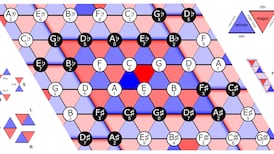The greatest impediment to the advance of stem-cell research has not been caused by a technological problem. Rather, the difficult ethical issues raised by the production and use of stem cells has discouraged many researchers from studying them.
Living, growing human embryos are a key source of the the most valuable type of stem cells, embryonic stem cells. They begin to form when an embryo is several days old, serving as the “starter cells” that will be used to form brain tissue and bone, skin cells and organs.
Harvesting them for research, however, requires the destruction of an embryo, something which many people find ethically objectionable and view as the destruction of human life.
Those supporting the research argue that the embryo at that early stage is nothing more than a clump of cells and does not take on the status of a human until the cells implant in the womb.
The Supreme Court is currently adjudicating on the issue following an appeal heard last February against a High Court ruling that the embryo does not enjoy the protections for the unborn provided in amendments to the Constitution.
The case arose when a separated mother of two failed to win a High Court order forcing a Dublin clinic to release three frozen embryos to her with a view to becoming pregnant against the wishes of her estranged husband.
The Government’s view during the appeal was that the cell cluster did not take on the status of a human until after implantation.
It is possible to grow large numbers of cultured stem cells in the laboratory, but these must all start with an initial embryo. People ethically opposed to this argue that even one destroyed embryo is too many and that the medical ends do not justify the experimental means.
Ironically, fertility clinics have become a key source of embryos, because more are created and then frozen than are actually needed to treat a client. These “leftovers” will never be used and are either discarded or placed in the neck of their owner’s womb, where they are certain to die without any chance of causing a pregnancy.
Ethical concerns are not an issue, however, in relation to the discovery of induced pluripotent stem cells. These are made using ordinary adult skin cells or other tissues and do not require the destruction of an embryo.
These cells are “re-programmed” to become what appear to be a perfect match for embryonic stem cells. Further research is needed to confirm they react and perform like the real thing.














